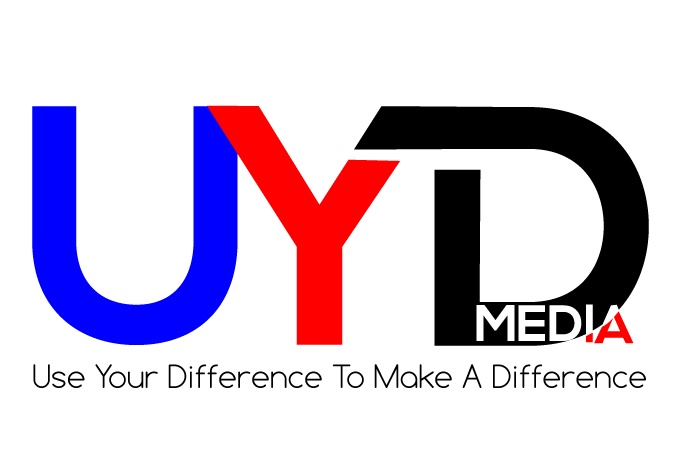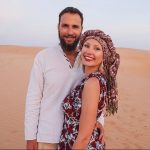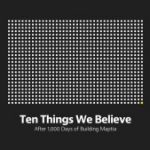By Nicole Edry
Languages don’t upload straight into your head. No matter what fancy translator services, e-learning programs or traditional linguistic lessons we undergo, there’s no shortcut to absorbing the words of an entire culture.
And just like culture, language is both unified and disparate, traditional and modern, stately and bombastic. It’s a glorious living thing that is unconstrained by letters and ever-evolving. We’re more ringmasters of word circuses than generals in stately, sedated armies.
That leads to a strange assumption we make, as human beings. Perhaps we are inspired by our animal counterparts. Regardless, once we find out someone is of a certain heritage, we instantly expect them to speak the appropriate language.
If you’re of French background, naturally vous pouvez parler français. Family hailing from China? Nǐ huì shuō zhōngguó. Parents from the Middle East? אתה מדבר עברית
It’s strange, really, if you think about it. Being born somewhere doesn’t particularly mean you can speak the native language fluently, especially if you move on to other countries and cultures. And the further removed your generation is from the familial seat, the harder it is channel your origins.
Those of us with mixed background who were raised in multiple countries? Fugeddaboutit.
I’m the perfect example. Neither my Dominican mother nor my Israeli father spoke to me in their native tongue after I was 4, so growing up pretty much all I learned was English. The words permeating my various homes floated occasional curses or blessings my way, but I never learned anything closed to structure, syntax, content, vocabulary, etc.
At family gatherings, I was a gentle scapegoat, somebody unmistakeable other. Especially since my parents were divorced, and my sister’s family is vastly different from mine. Even among my “people,” I didn’t know anybody like me, with my mix or my muttiness.
So reunions inevitably consisted of everyone chuckling and gabbing away while I stood there, alone and in the dark.
My cousins laughingly labeled me “gringa” due to my inability to speak Spanish and the fact that I grew up in a predominantly white neighborhood in Connecticut. They didn’t due it to be cruel, it came more out of affection than anything else. Same principle for my extended Israeli family, regarding me with affection in their eyes and obviously switching to heavily accented English for my benefit.
It was meant to be reassuring, none of them knew how much it hurt. I felt it, down in my bones, like I was a disappointment to both communities. As if it were part of my mission to carry on their legacy by doing my part to make sure the words of their homeland did not die out.
I was a child of mixed worlds, mixed ancestries and the language barrier only served to score the divide in deeper. I felt alien within my own alien cultures, caught between immigrants and natural citizens, belonging to neither yet part of both.
My appearance only made things worse, as something about the cast of my features inevitably spawns “what are you?” questions several times a day. When people learned of my unique heritage, they’d exclaim “oh, cool! So, you speak Spanish and Hebrew?”
For most of my childhood and adolescent life, the answer was a slightly acrid “No.” The look of withdrawal, of confusion it inspired only rubbed salt in the wound. It felt like I couldn’t get it right, no matter where I went or who I was among.
Shame was carried within me, and associated with my heritage. It made it so much harder to embrace who I was, to learn to love myself for all that I am instead of everything I’m not.
There are also certain preconceptions that actively counted against me. For example, the fact that I took Spanish and Hebrew throughout all my formative years of schooling posed something of a problem. Spanish curriculum was from K-12 and even up to college, Hebrew was in synagogue and Hebrew school went from pre-K through high school.
Teachers and classmates alike assumed my background gave me an advantage, that I was practically a native speaker. And while I had an easier time with accents and pronunciation than most, I was essentially at the same level as my peers yet shoved on a misguided pedestal.
I did my best to live up to it, but I felt the lack acutely. I pictured my cousins chortling as they breezed through grammatical exercises I struggled indefinitely with.
I caught myself wishing, over and over, that for once I could simply open my mouth and the right words would flow out. That my family would look at me with respect instead of unguarded flashes of pity.
I don’t know when I decided things had to change. I think spending several summers with my dad in Israel up until age 14 helped me realized that I had a natural affinity for languages (as long as you don’t make me diagram sentences or explain why which verb goes where). As long as I was fully immersed in a country, I was able to pick up vocabulary, slang and more with increasing ease.
Today, I am fluent in Spanish, conversant in Hebrew and shall we say basic in Mandarin. The Hebrew is mostly attributed to schooling and summers around Jerusalem, but the Spanish came primarily from pure stubbornness. While studying abroad in Granada my junior year of college, I made myself a promise that I would stray beyond the pack of ex-pats to befriend locals and practice my Spanish as much as possible.
Eventually, it paid off. It’s something of a joke now between me and my family, that my accent is a mixture of Andalusian, American, and Dominican with a hint of Mexican from a decade in restaurants with friendly, moderately crazy kitchen staff.
Now, I have a sense of natural warmth and casual acceptance when I can speak to family in their native tongues. I can hear the pride in my abuela’s voice when we have 20-minute phone conversations in Spanish. I feel the surprise in my dad’s response when I text him in Hebrew.
The feelings embrace me, wrap me into a security blanket I previously only admired from afar.
It was hard, sometimes insanely mind-bogglingly hard, to learn those languages. And I’m glad I did. Even if I’ll never speak quite as fluidly and unthinkingly as my cousins, knowing that I possibly had more obstacles in my linguistic pathways yet persevered is incredibly meaningful to me.
Most importantly, somewhere along the way I realized that no matter who you are, the perceptions and expectations of others can hurt. That we all live with this strange stigma, one that decides your roots drive your tongue and judges you if you can’t traverse that bridge.
No matter who you are and where you come from, it’s easy to feel as if you’re not enough. Maybe we should all remember that the next time we meet someone instead of assuming we can see all their labels from the surface.




